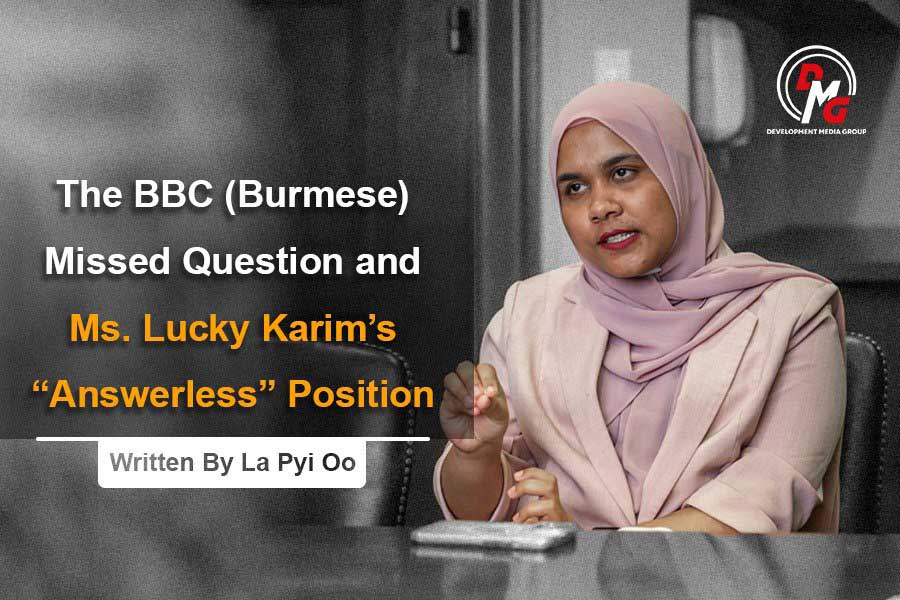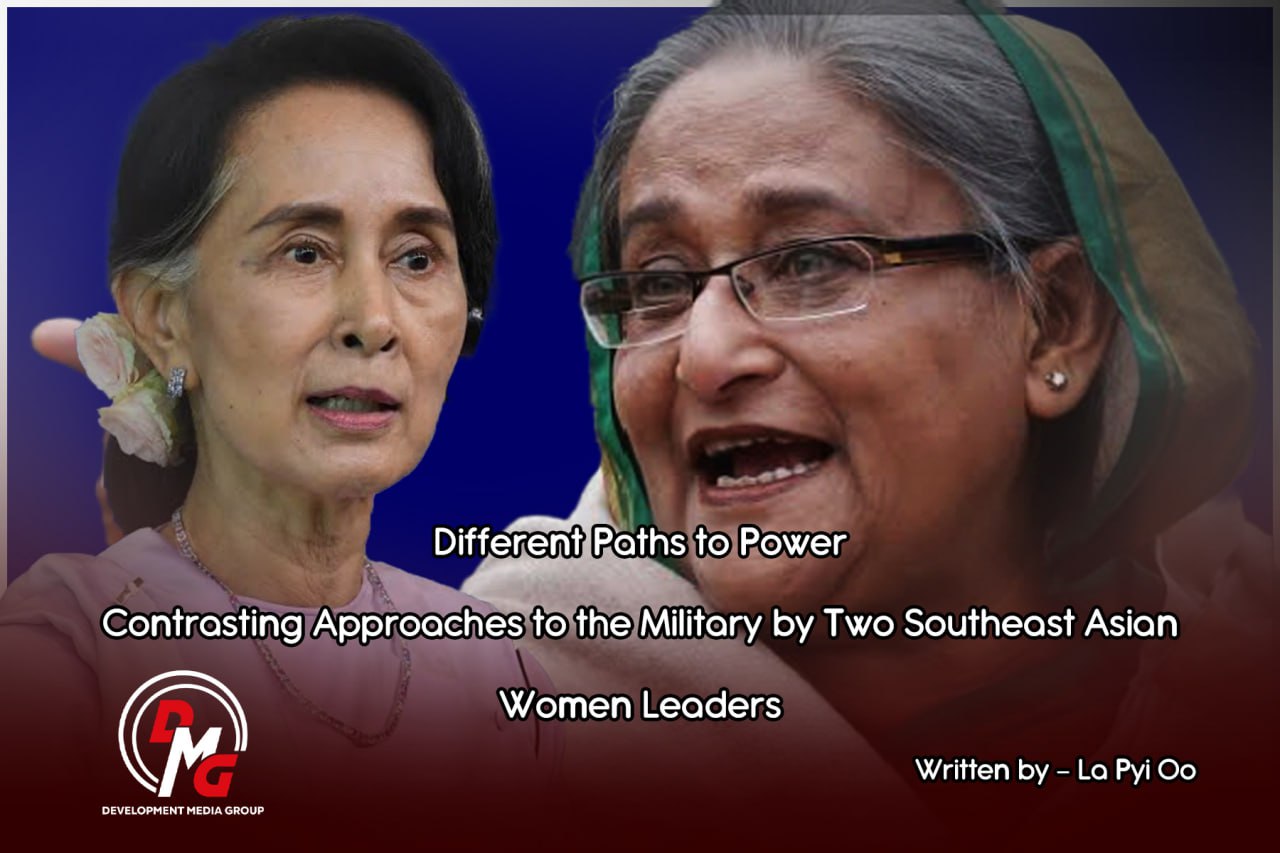- Family of minors raped by abbot in Kyaukphyu demand justice
- Salt farming declines in Arakan State as costs rise and markets falter
- Thousands flee junta raids in Mindon as villages are torched
- Children in Arakan State urgently need psychosocial support and safe spaces
- Regime uses paramotors and gyrocopters to target civilians, Fortify Rights says
The BBC (Burmese) Missed Question and Ms. Lucky Karim's "Answerless" Position
Anchoring on AA "accountability" as a precondition has, in effect, overlooked AA-led social-cohesion efforts visible on the ground. Combined with media omissions on ARSA/RSO dynamics, the exchange failed to point toward the relationship-building and trust-building that repatriation will require.
24 Oct 2025

Written By La Pyi Oo
Introduction
At a UN General Assembly (UNGA) side event in late September 2025, Rohingya activist Ms. Lucky Karim again drew international attention. Her follow-up Q&A with BBC Burmese on 11 October 2025 created a moment that deserves close scrutiny.
Ms. Karim focused on two themes: urgent funding for camps in Bangladesh and the call for voluntary, safe, and dignified repatriation. Yet rather than moving the discussion toward a realistic political pathway, the interview ended-because of media omissions of pivotal questions and a refugee representative's avoidance of pragmatic strategy-with "answerless positions" on repatriation.
UNGA and Ms. Lucky Karim's Demands
In this context, UNGA sought a sustainable resolution to the crisis and to address urgent funding gaps. Ms. Karim effectively spotlighted camp-level humanitarian distress, especially service shortfalls from aid cutbacks-an important form of humanitarian pressure on donors.
On repatriation, she reaffirmed the international standard of returning "voluntarily, safely, and with dignity."
Ms. Karim's Political Position on the Arakan Army (AA)
A crucial realist question in the BBC interview was whether engagement with the Arakan Army (AA)-which currently wields decisive control over much of Arakan State-is necessary for repatriation to be feasible. Given AA's dominance in the state's power dynamics, some level of cooperation is an inevitable factor for any repatriation mechanism.
Ms. Karim's reply, however, did not open a lane for political dialogue with AA. Instead, she emphasized that AA must be held accountable for alleged abuses-framing the issue in terms of accountability rather than negotiation.
This stance implies:
1. Justice-oriented rhetoric: Calling first for AA "accountability" reflects a justice-first posture prevalent since 2017. While a core demand of Rohingya advocacy, it can become an answerless position if it blocks the political cooperation needed for repatriation. Under current power dynamics in Arakan, demanding accountability up front risks closing the negotiation channel.
2. Avoiding Realpolitik: There appears to be an avoidance of direct political recognition and "bitter collaboration" with AA. That raises a practical question: Is the approach truly a long-term strategy representing refugee interests, or a short-term posture reliant on international pressure?
Concerns Raised by Ms. Karim vs. On-the-Ground Social-Cohesion Efforts
Ms. Karim voiced concern for the safety of Muslims not only in the camps but also inside Arakan. Such concerns are understandable; however, they sit uneasily alongside current efforts to improve social harmony on the ground.
Recently, AA Commander-in-Chief Maj-Gen. Twan Mrat Naing traveled to Maungdaw and met leading figures from the Muslim community. AA also reopened the central Jame Mosque-long closed under the junta-an important gesture of goodwill. These moves indicate that the ULA/AA acknowledges religious freedom locally and is exercising administrative capacity for coexistence.
There are also credible reports that some Muslims serve within United League of Arakan (ULA)/AA departments-practical steps toward confidence-building and political inclusion between Arakanese/Rakhine and Muslim communities.
The BBC's "Missed Question" and a Note on Media Ethics
A second factor limiting the interview's utility was a notable omission by the BBC interviewer: there was no probing question about the current activities of armed Muslim groups-Arakan Rohingya Salvation Army (ARSA) and the Rohingya Solidarity Organisation (RSO)-inside Arakan, or their clashes with AA. Omitting this essential security layer sidestepped a feasibility discussion critical to any repatriation plan.
Conclusion: Political Utility Assessment
Ms. Karim's UNGA appearance and BBC interview helped sustain international attention and humanitarian funding. But on the paramount political mission of repatriation, the interview did not surface a pragmatic roadmap.
Anchoring on AA "accountability" as a precondition has, in effect, overlooked AA-led social-cohesion efforts visible on the ground. Combined with media omissions on ARSA/RSO dynamics, the exchange failed to point toward the relationship-building and trust-building that repatriation will require.
In short: the dialogue remained at the rhetorical stage of the Rohingya issue and did not produce the practical political solutions needed to move repatriation forward.
Note: The views expressed in this essay are solely those of the author.





.jpg)














